Search
Search Results

Definition
Oedipus at Colonus
Oedipus at Colonus was the third play of the Oedipus trilogy written by the great Greek tragedian Sophocles (c. 496 - c. 406 BCE). Although written in the years prior to his death, it would finally be presented by his son Iophon at a dramatic...
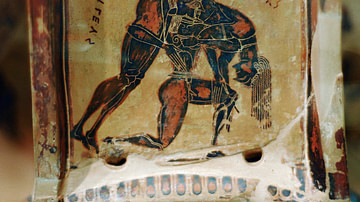
Definition
Ajax (Play)
Ajax is a play written by the 5th-century BCE Greek poet and dramatist Sophocles. Although Sophocles wrote at least 120 plays, only seven have survived. Of his surviving plays, the best-known is Oedipus Rex (Oedipus the King) - part of a...

Definition
Women of Trachis
Women of Trachis is a Greek tragedy, one of Sophocles' (c. 496 BCE - c. 406 BCE) lesser-known works, the only one that does not deal with the aftermath of the Trojan War, rather it is concerned with the death of the Greek hero Heracles (or...
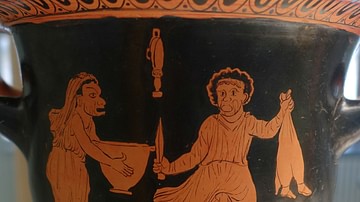
Definition
Thesmophoriazusae
The Thesmophoriazusae (also called The Poet & the Women or Women at the Thesmophoria) is a two-act comedy play written in 411 BCE by the great Greek comic playwright, Aristophanes. The play's principal focus is on the Greek tragedian Euripides...
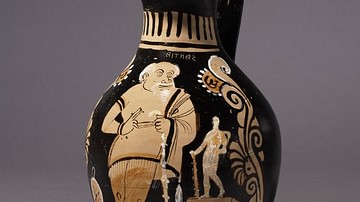
Definition
The Frogs
The Frogs is a comedy play by Aristophanes (c. 445 - c. 385 BCE), the most famous of the comic playwrights of ancient Greece. Named after the creatures who composed the play's chorus, it won first prize at the dramatic festival at Lenaea...

Definition
Andromache
Andromache is a Greek tragedy written by Euripides (c. 484-407 BCE), one of only 19 plays (out of 92) to survive. The play is actually in two parts, and like Sophocles' Women of Trachis, it has no central character. The first part of the...

Definition
Iphigenia in Aulis
Iphigenia in Aulis (or at Aulis) was written by Euripides, the youngest and most popular of the trilogy of great Greek tragedians. The play was based on the well-known myth surrounding the sacrifice of Agamemnon and Clytemnestra's daughter...
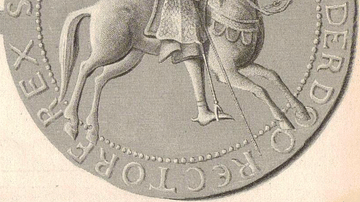
Definition
Alexander I of Scotland
Alexander I of Scotland reigned from 1107 to 1124 CE. Alexander continued the reorganisation of the Scottish Church, taking the Roman Catholic Church organisation as a model, and he famously founded the priory at Scone, site of the acclamation...
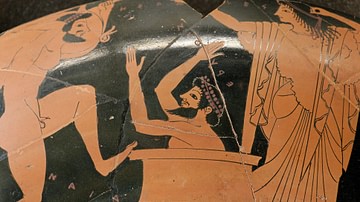
Definition
The Children of Heracles
The Children of Heracles (Heraclidae) is one of Euripides' lesser known and least popular works, as is the myth surrounding the tragedy play. Its date is also uncertain, possibly written in the late 430s or early 420s BCE. The play revolves...
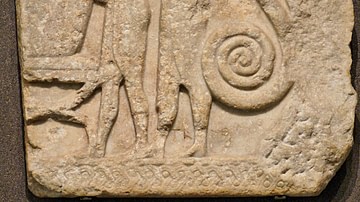
Definition
Agamemnon (Play)
The play Agamemnon was written by one of the greatest Greek tragedians Aeschylus (c. 525 – 455 BCE), “Father of Greek Tragedy.” Older than both Sophocles and Euripides, he was the most popular and influential of all tragedians of his era...